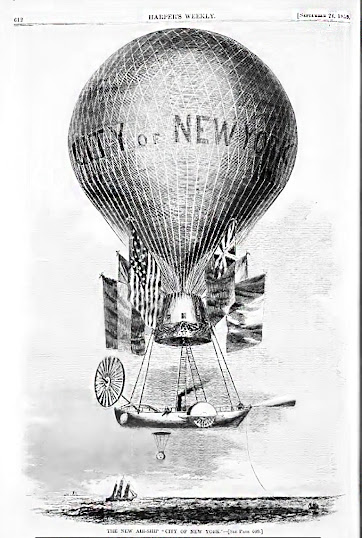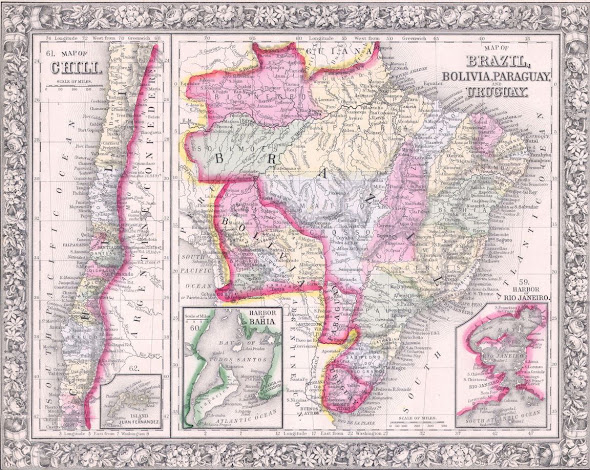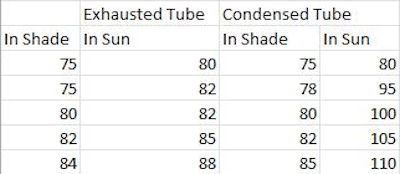Give It Your Best Shot--Dueling Before the Civil War
The Code Duello
Southern congressmen used the threat of dueling to bully Northern members into supporting—or, at least not opposing—pro slavery bills. It was one of several ways a wealthy minority could control the country’s governance against the clear sentiment of the majority. By the 1850s a Southern congressman refusing a duel meant certain defeat at the next election. By contrast, a Northern member accepting a duel challenge could count of being defeated at the next election as the North’s repulsion against both slavery and duels grew.
25 Congressional Challenges
New York Herald August 31, 1856
There have been 25 congressional challenges to fight duels since the organization of the First Congress, and the greater number of these originated in quarrels which, though political, had no reference to matters which occurred in Congress.
That number above nearly doubled in the following four years.
The code
duello as it was sometimes termed, lasted in the South barely a
century from 1765 to 1865. Originating in the North it soon fell out of favor but
became an iron clad part of Southern aristocratic behavior. Most states had
laws against dueling which were seldom enforced. Fortunately, many if not most duels
were settled with little or no bloodshed.
Lincoln’s Duel
September 22, 1842
Abraham Lincoln was challenged to a duel by James Shields, then the Illinois state auditor. At the time, Lincoln was serving in the Illinois legislature. The financial panic of 1837 had pressed the Illinois government to near bankruptcy. Shields proposed using paper money to cover the deficit rather than silver and gold. Under a pen name, “Aunt Becca,” Lincoln wrote a biting and flagrantly inflammatory satire of Shields published in the Springfield, Illinois newspaper the Sangamo Journal. Several more stories from “Aunt Becca” followed, written, not by Lincoln, but by his wife Mary Todd. James Shields confronted Lincoln and challenged the future president to a duel. On September 22, 1842, the men met on Bloody Island, a sand bar between Missouri and Illinois. As the challenged party, Lincoln chose cavalry sabers, since Shields was known as a crack shot. The duel did not occur. Whether seconds or the men themselves solved the matter is unknown. Later Shields and Lincoln became fast friends and political allies.
Pryor-Potter Duel
Dallas Herald
April 25, 1860
Washington DC—April 13- Great
excitement is prevailing throughout the city in regard to an affair of honor,
which will probably take place shortly, between two prominent members of the
House of Representatives. The recent colloquia between the Honorable Roger A. Pryor
of Virginia and the honorable John F. Potter of Wisconsin, has caused the
former to send a challenge to Mr. Potter to fight a duel outside the District
of Columbia. Carl Lander, the friend of Mr. Potter, has accepted the challenge
and named Bowie Knives as the weapons to be used on the occasion. He also
offered to substitute himself for Potter as principal. The Friends of Mr. Pryor
declined the use of dual weapons, saying that arms of that description were
only used among Barbarians, they declined to accept the substitution. Mr. Pryor
is still in Virginia and has as yet received no information as to the action of
his friends, which was probably taken after a consultation with MSSRs, Miles,
Keate, Mason and Hammond.
SECOND DISPATCH--Mr. Potter made
his appearance in the House this afternoon and was greeted by his friends. Whether
Mr. Pryor will sanction the action of his friends remains to be seen. The
substitution of Bowie knives for the usual weapons between gentlemen on such
occasions may be considered a ruse on the part of Mr. Potters friends to avoid
placing Mr. Pryor on vantage ground knowing him to be a good shot. The choice
of weapons desired devolves on the challenged party, but we conceive that the
selection was in bad taste.
Congress
was not the only source of duels. Young
men dueled over young women. Newspaper editors frequently dueled. Politicians
running for office might duel an opponent—easier to shoot him than beat him at
the ballot box. Southern congressmen dueled Southern congressmen, famously Henry
Clay of Kentucky and John Randolph of Virginia.
Senator Benjamin of Louisiana and Senator Jefferson Davis of Mississippi
almost dueled in 1858 but the matter was settled without bloodshed.
To refuse a
duel in the South was unthinkable. It dishonored the challenged party whatever
the justice or truth of the situation. Moreover, it justified being simply
attacked on the street or even on the floor of Congress on the grounds that the
victim was not a true gentleman.
Brutish
behavior such as Representative Pickney of South Carolina beating Massachusetts
Senator Sumner nearly to death on the Senate floor was considered acceptable in
Southern eyes. In fact, Pickney received dozens of new canes when he mentioned
he had broken his own cane on Sumner.
Middle
class—or aspiring middle class--men dueled, frequently over women or unsettled gambling
debts.
October 7, 1852 New York Times
Wilson -Gwen Duel
June 19, 1858
Harper’s Magazine
Two days afterward, Mr. Wilson had
made a speech in reference to the expenditures of the Government of California.
Mr. Gwen, in reply, said that he had heard a great del of demagogism in
connection with the expenditures in California. Mr. Wilson asked if he intended
to apply the word demagogism to him. Mr. Gwen declined to explain or reply.
Mr. Wilson said:
“The Senator declines to answer. Very well. I say to him demagogism is better
than thieving. I had rather be a demagogue than a thief.”
Mr. Gwen
inquired if the Senator meant to apply his language to him, or to the officers
of revenue in California.
Mr. Wilson
said he had no explanations to give to the Senator from California. Mr. Gwen
then said: “If the Senator means to apply the term to me, he is a calumniator
and a coward.”
The
President called both gentlemen to order, when Mr. Wilson remarked that what
the Senator from California said did not change the record.
Senator
Gwen has challenged Senator Wilson. He sent him a note by Mr. Fitch of Indiana,
asking for a meeting outside the District. Mr. Wilson replied by citing to him his
reply to Mr. Brooks, to the effect that dueling was forbidden by the laws and
by the matured convictions of his whole life. Mr. Seward and other Senators are
arriving to arrange the difficulty, and will doubtless succeed.
September 7, 1854 New York Times
Southern blindness to the world’s contempt for the custom was demonstrated when Confederate President Jefferson Davis appointed Pierre Soulé as a representative of the Confederacy to encourage European powers to aid the South. Only 8 years before as newly appointed American ambassador to Spain, Soulé and his son had fought duels with both the Spanish Duke of Alba and the French ambassador to Spain. The son challenged the Duke of Alba over a supposed insult to his mother, and his father challenged the French ambassador solely on the grounds that an insult to his wife had been uttered at the French ambassador’s residence.
Dueling had
a strict code of behavior. An aggrieved party
would “send a card” to the challenged man detailing the insult and demanding
apology or satisfaction by way of a friend, “a second.” The challenged party would send a reply via
their own chosen “second.” Future communication was handled between the
seconds. The seconds were first to
attempt to come up with a solution to satisfy honor for each party. Failing that,
they negotiated the time and place of the duel. The challenged party chose the
weapons--flintlock pistols, swords, or Bowie knives. And there was getting away from it, even if in Europe or elsewhere.
Duel Between
Americans
April 24, 1858
Harper’s Magazine
The Commercial gives the following extract from its
Paris correspondence letter.; “A duel took place here three days ago between
Mr. Calhoun of South Carolina, the Secretary of the American Legation in this
city, and Mr. Brevoort of New York. They exchanged shots with pistols; and then,
on account of an informality, the seconds
stopped the fight for explanations. No meeting has since taken place, and I
believe the affair is to be published.
Duels in SC
Augusta, GA Constitutional June 4, 1857
THE DUELS YESTERDAY MORNING—Two duels were fought yesterday morning, at half-past four o'clock, on the South Carolina side of the river, a few 100 yards above Heinberg. The first took place between Mr. Phillips and Mr. Moorfield, and the second between Mr. Prather and Dr. Appleby. Messrs. Phillips and Prather are the editors of the Lafayette (Alabama) Tribune and Mr. Moorfield and Dr Appleby, editors of the Lafayette Herald. The distance was 10 paces, and pistols the weapons used. After the first fire in each duel mutual friends succeeded in adjusting the difficulties between the parties. Fortunately, neither duel was attended with any injury.
Early
flintlock pistols were so inaccurate at 20 or 40 paces that several rounds of
firing might happen with no result. (This writer can attest, having fired such a pistol repeatedly. It might well be easier to throw it more accurately.)After each round of firing, the seconds were to attempt once more to
negotiate an agreement. If subsequent
rounds of firing produced no result, the seconds could declare honor satisfied
for both parties and the matter closed. The same was true of a sword fight
lasting more than 30 minutes with each party unharmed. Bowie knives were
serious. Many gentlemen considered Bowie knives beneath consideration.
A very detailed history of Congressional dueling is Prof. Joanne B. Freeman's 2018 book "The Field of Blood--Violence in Congress and the Road to Civil War"









You write well and know a lot about a lotta things - seems to me you could get paid for this skill
ReplyDelete